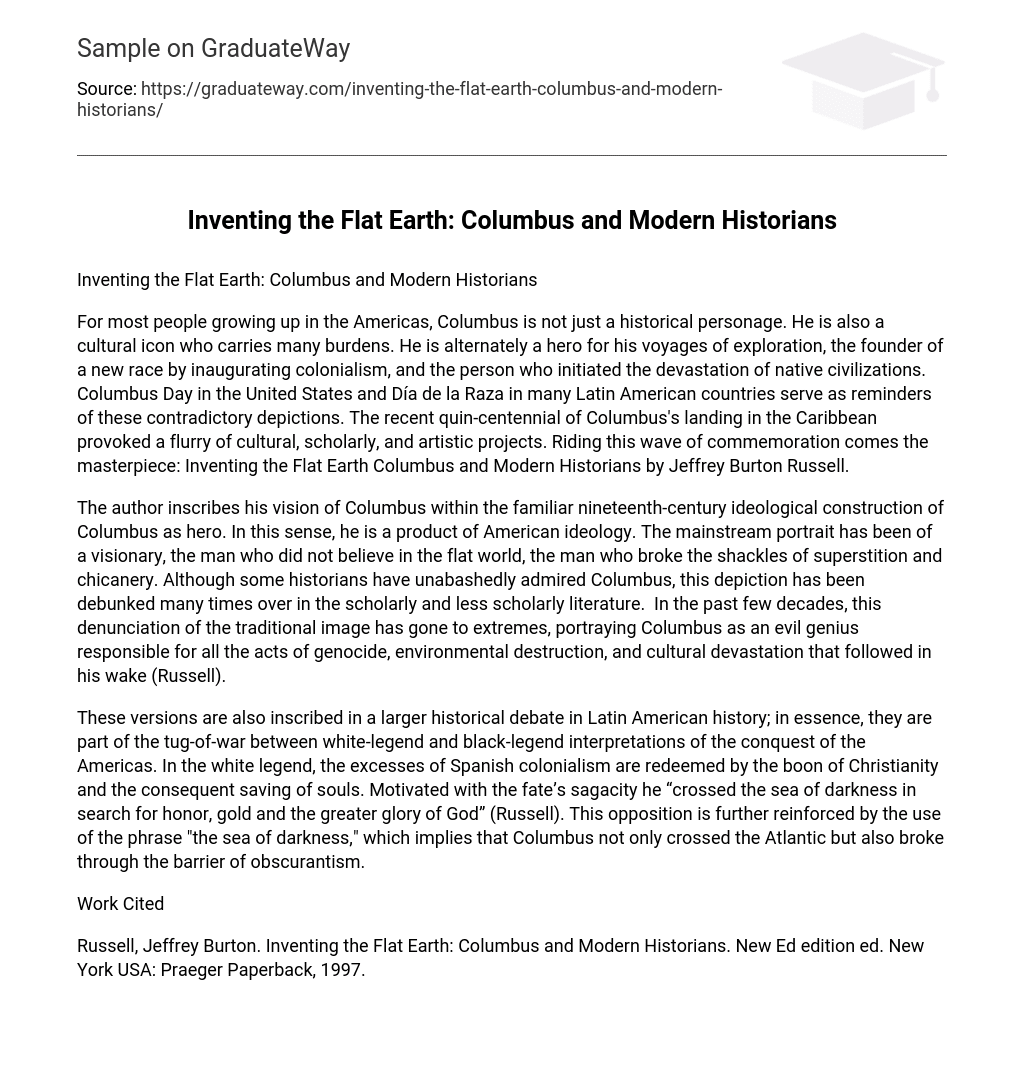For most people growing up in the Americas, Columbus is not just a historical personage. He is also a cultural icon who carries many burdens. He is alternately a hero for his voyages of exploration, the founder of a new race by inaugurating colonialism, and the person who initiated the devastation of native civilizations. Columbus Day in the United States and Día de la Raza in many Latin American countries serve as reminders of these contradictory depictions. The recent quin-centennial of Columbus’s landing in the Caribbean provoked a flurry of cultural, scholarly, and artistic projects. Riding this wave of commemoration comes the masterpiece: Inventing the Flat Earth Columbus and Modern Historians by Jeffrey Burton Russell.
The author inscribes his vision of Columbus within the familiar nineteenth-century ideological construction of Columbus as hero. In this sense, he is a product of American ideology. The mainstream portrait has been of a visionary, the man who did not believe in the flat world, the man who broke the shackles of superstition and chicanery. Although some historians have unabashedly admired Columbus, this depiction has been debunked many times over in the scholarly and less scholarly literature. In the past few decades, this denunciation of the traditional image has gone to extremes, portraying Columbus as an evil genius responsible for all the acts of genocide, environmental destruction, and cultural devastation that followed in his wake (Russell).
These versions are also inscribed in a larger historical debate in Latin American history; in essence, they are part of the tug-of-war between white-legend and black-legend interpretations of the conquest of the Americas. In the white legend, the excesses of Spanish colonialism are redeemed by the boon of Christianity and the consequent saving of souls. Motivated with the fate’s sagacity he “crossed the sea of darkness in search for honor, gold and the greater glory of God” (Russell). This opposition is further reinforced by the use of the phrase “the sea of darkness,” which implies that Columbus not only crossed the Atlantic but also broke through the barrier of obscurantism.
Work Cited
Russell, Jeffrey Burton. Inventing the Flat Earth: Columbus and Modern Historians. New Ed edition ed. New York USA: Praeger Paperback, 1997.
;





